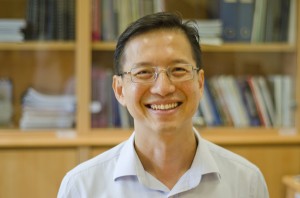Young Children’s Voices in Mathematical Problem Solving
Contributed by Dr Ho Siew Yin and Sng Wei Qin Abbie, from NTUC First Campus, for SingTeach Virtual […]
Read More
Educational equity comprises many different aspects, including appropriate access to education and inclusion. It can be a challenge for teachers to be inclusive in a class of 40 where some students may have greater needs than their peers. But it is not impossible.
The right to education is one of the tenets of the United Nations Conventions on the Rights of the Child that Singapore has ratified. Within Singapore’s context, this takes the form of ensuring that each student has access to an appropriate environment – be it in a mainstream or specialized environment – whereby his or her opportunities in education can be maximized, Associate Professor Kenneth Poon explains.
When talking about educational equity, inclusion is another aspect that researchers look into, especially in mainstream education. That includes children with special needs who possess the academic merit to attend mainstream secondary schools.

Kenneth acknowledges the challenges of achieving educational equity. For his previous project on students with special needs, he sought to understand how they were being supported in two secondary schools identified for their exemplary practice of nurturing students with special needs.
He found that teachers were usually able to provide adequate support if they received the required training.
“They appreciated the training, because they realized that they could do something to support students with special needs, and that it doesn’t require heroic efforts to do so,” says Kenneth.
Apart from the training, teachers were also empowered when there was support from the school leadership. Kenneth notes that school leaders who are supportive usually drew upon their schools’ mission statements of giving every student a chance and maximizing their potential.
“When the leaders drew upon that mission, they materialized it in terms of the structures they provided within the schools,” he explains. “We saw inclusion being facilitated in schools from our meetings with them.”
As a psychologist by training and a researcher in early childhood and special needs education, Kenneth is an avid reader of autobiographies penned by authors with autism spectrum disorders (ASD). These authors frequently cite their teachers as the ones who made the difference in their lives.
“It’s usually that one teacher who believed in them, understood their strengths and weaknesses, and then built upon their strengths,” Kenneth says.
To him, that underlines the importance of a teacher, and how the relationships between teachers and students are significant in making the school a more equitable place.
In Kenneth’s ongoing study on helping teachers to support youth with ASD in secondary schools, he looks at how a professional development programme can help the teachers provide such support.
“In this programme, we want to build a sense of understanding – not just the cognitive but also the affective understanding – of what it is like to be a child with ASD, or to be a parent of a child with ASD,” says Kenneth.
This helps them develop empathy in supporting the students as well as when working with their families.
Another part of the programme is to help the teachers develop a framework instead of individual strategies.
There is no one formula as every student with special needs is so different, says Kenneth. “We try to introduce a broad framework whereby it can be tweaked by the teachers, so that they can customize it for their students.”
Kenneth and his team adopted an ecological approach for teachers to help them think about adapting their pedagogical practices and even the way they interact or talk to the students.
Through this approach, they could even adapt the physical environments of the classroom, or tap upon available resources, such as the fellow classmates, to further support those students with special needs.
The more positive experiences the teachers have in supporting students with special needs, the more positive they feel and the more inclusive they become.
– Kenneth Poon, Office of Education Research
“Sometimes teachers who face students with special needs feel overwhelmed by not knowing what to do or they think that they have a lot to do,” says Kenneth.
The professional development programme helps teachers understand special needs so that inclusion becomes more common.
“We know from international research that the more positive experiences the teachers have in supporting students with special needs, the more positive they feel and the more inclusive they become,” Kenneth notes.
Therefore, to make schools a more equitable place for all students and especially for those with special needs, the teachers need positive experiences when supporting such students.
This is where the support of school leadership and appropriate professional development for teachers come into play.
“Teachers should therefore have positively scaffolded experiences in teaching students, or in supporting the development of students who are disadvantaged in different ways.”
If these teachers can eventually progress to becoming mentors to such students, the benefits will be far-reaching. “A relationship between a student with ASD and treating the teacher as a mentor, and the teacher seeing the strengths of the person and working very hard to help build on those strengths, I think that makes a big difference.”